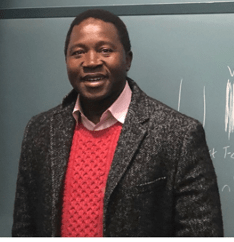It is with indescribable sadness that we write to inform you that Professor Peter Carr passed away last week. Peter touched so many lives in the FRE Department, NYU Tandon community, and within the finance industry.
Our BQE Lecture Series was created by Peter when he joined the department in 2016. We will keep his legacy alive and continue sharing events and research by other practitioners in financial engineering.
We hope you can join us.

Join us for the Brooklyn Quant Experience (BQE) Lecture Series on Thursday, March 10th at 6 pm ET on Zoom.
“Optimal Execution with Quadratic Variation Inventories”
Laura Leal
Ph.D. Student
Operations Research and Financial Engineering Department
Princeton University

*Please note a meeting password is required for this event.
Meeting ID: 922 7756 8804
Password: BQELL310
Abstract
We describe and implement statistical tests arguing for the presence of a Brownian component in the inventories and wealth processes of individual traders. Using intra-day data from the Toronto Stock Exchange, we provide empirical evidence of this claim. Both for regularly spaced time intervals, as well as for asynchronously observed data, the tests reveal with high significance the presence of a non-zero Brownian motion component. Furthermore, we extend the theoretical analysis of an existing optimal execution model to accommodate the presence of Ito inventory processes, and we compare empirically the optimal behavior of traders in such fitted models, to the actual behavior read off the data.
Bio
Laura Leal is a final-year Ph.D. student in the Operations Research and Financial Engineering department at Princeton University. Her research interests are centered in high-frequency finance, using machine learning, deep neural networks, optimization, statistical and econometric methods to study high-frequency trading data. The main topics she has worked on include optimal execution, market making, identification of institutional activity, and tail risk.







